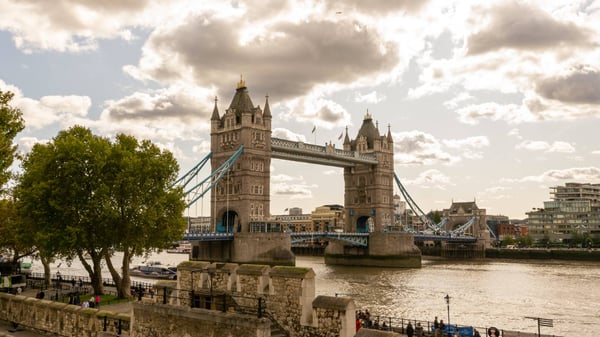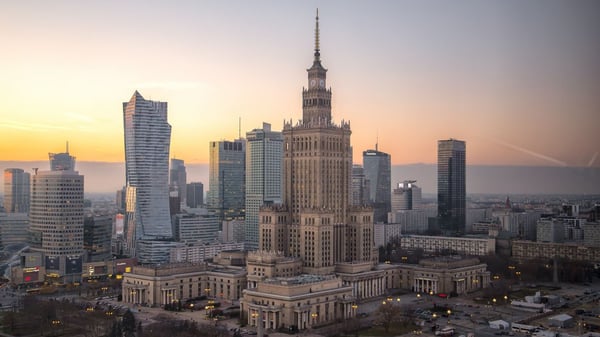In 2020, there were 281 million international migrants around the world, 3.6 per cent of the global population. Then, the Covid-19 pandemic all but put a halt to international migration. Now, with borders reopened and transport options taking flight once more, cross border movement has reignited throughout 2021 and 2022.
Not only is it now an option, for many, it's a necessity. Rising costs of living, housing crises and increased opportunities for working abroad as a digital nomad have seen many expats preparing to move once again, either back to their home countries or somewhere new.
If you're joining the global migration, consider these elements to help you with the transition.
One thing to note is that when you need to transfer your savings abroad, CurrencyFair allows you to send and receive money to and from over 150 countries in over 22 currencies. Get same-day transfers on most major currencies from a trusted and secure source that's fully licensed and regulated.
Consider tax residency
If you're living in one of the 16 countries with no income tax, you could be saving a considerable amount, so it's something to factor into your cost of living budget in your next destination.
Living abroad doesn't mean working tax-free. You'll typically be paying income tax on earnings in the country where you are resident. That gives you the following options when you move abroad:
-
Spend less than six months (183 days) working overseas and maintain tax residency at home. You'll be taxed at source overseas, but as long as your country has a dual taxation agreement, you won't have to pay tax twice.
-
If you spend more than 183 days abroad, you'll typically have to establish tax residency overseas. That means you'll no longer be liable for income tax at home, which can be a prudent strategy if you move to a country with a lower income tax rate.
Learn more about the tax implications of working abroad, what double taxation is, and at what point you may need to decide where to plant your residential roots in terms of tax liability. It's recommended that you seek advice from an expert to ensure you have no tax liabilities before leaving a country.
Notify your landlord, or decide what to do with your home
Depending on the country you're leaving, you may have specific requirements for how to go about leaving your home. Renters leaving Germany, for example, need to notify their landlord in writing within the notice period, which under German law is at least three months. Many countries have contracts with notice periods built in, so consider this in your timeline.
Property owners have a wider range of factors to consider. Those who choose to rent out their home instead of selling it will need to decide whether to manage the property from abroad themselves or use a local property manager. The former option is more effort, while the costs associated with the latter eat into rental income.
Cancel contracts
Often overlooked money matters for expats include the time frames around cancelling contacts, exchange rates, and insurance; they're some of the hardest parts about moving abroad.
Before leaving your current home and moving abroad, it's important to allow plenty of time to terminate contracts with utility companies, phone and internet providers, or health insurance, which generally have a cancellation period of a few months.
Watch out for high currency exchange fees and poor rates when transferring funds between bank accounts. Even if you pick one of the countries with a high minimum wage, such as Luxembourg, Ireland, or the Netherlands, excessive fees can turn a great opportunity into an underwhelming reality. CurrencyFair offers exchange rates up to eight times cheaper than the banks, and with our live currency exchange calculator you can see exactly how much it'll cost, with no hidden fees.
Selling your belongings
Whether it's your car or your cat, there are some things you won't want to do without in your new home. For anything you don't want to take with you, consider giving it away on free-cycle websites, or advertising on local Facebook groups. Just watch out for common Facebook Marketplace scams.
Cancel and apply for new visas
Obtaining a visa that allows you to work legally and access healthcare can be expensive, time-consuming and frustrating. You'll usually need originals of your birth certificate, certified copies and translations of your academic diplomas, a recent police report, and in some cases HIV tests to go with the now-standard Covid vaccination pass. You'll also need unlimited reserves of patience and good humour.
Given that you might not be allowed to work (legally at least) until your paperwork comes through, you may need a sizeable fighting fund to cover the cost of your first few weeks or months overseas.
How to save money when you transfer your savings
If you're leaving permanently, you might consider transferring your funds and closing your account. CurrencyFair offers secure money transfers to over 150 countries and over 22 currencies. If you plan to move abroad, CurrencyFair lets you send and receive money around the world, saving you money when it's time to transfer your savings or pay tax overseas.
You can choose to send money immediately with quick, low-cost money transfers, or set your own rate on our Marketplace, and wait for the market to meet it - meaning you could even beat the currency market rate that you see online when you need to send money abroad. And our world-class customer experience team is available to offer support when you need it.
Sign up today for fast, secure money transfers and send money overseas at better exchange rates, with no hidden fees.
This information is correct as of August 2022. This information is not to be relied on in making a decision with regard to an investment. We strongly recommend that you obtain independent financial advice before making any form of investment or significant financial transaction. This article is purely for general information purposes. Photo by Kevin Woblick on Unsplash.












%20(1).jpg?width=600&name=tim-trad-BYPMtjYMEyk-unsplash%20(2)%20(1).jpg)
